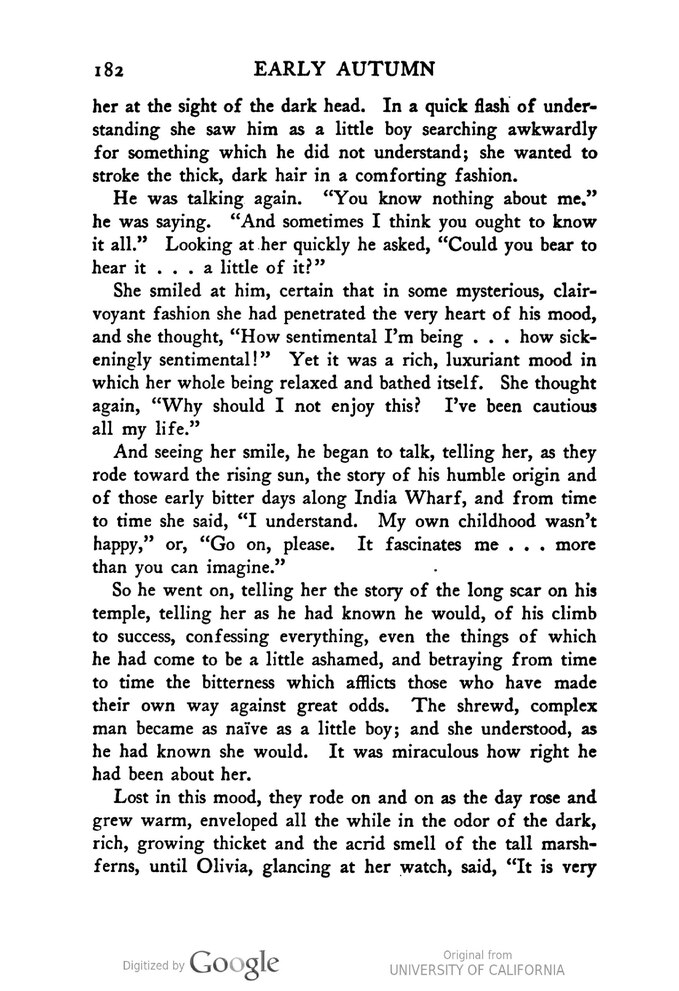her at the sight of the dark head. In a quick flash of understanding she saw him as a little boy searching awkwardly for something which he did not understand; she wanted to stroke the thick, dark hair in a comforting fashion.
He was talking again. "You know nothing about me," he was saying. "And sometimes I think you ought to know it all." Looking at her quickly he asked, "Could you bear to hear it . . . a little of it?"
She smiled at him, certain that in some mysterious, clairvoyant fashion she had penetrated the very heart of his mood, and she thought, "How sentimental I'm being . . . how sickeningly sentimental!" Yet it was a rich, luxuriant mood in which her whole being relaxed and bathed itself. She thought again, "Why should I not enjoy this? I've been cautious all my life."
And seeing her smile, he began to talk, telling her, as they rode toward the rising sun, the story of his humble origin and of those early bitter days along India Wharf, and from time to time she said, "I understand. My own childhood wasn't happy," or, "Go on, please. It fascinates me . . . more than you can imagine."
So he went on, telling her the story of the long scar on his temple, telling her as he had known he would, of his climb to success, confessing everything, even the things of which he had come to be a little ashamed, and betraying from time to time the bitterness which afflicts those who have made their own way against great odds. The shrewd, complex man became as naïve as a little boy; and she understood, as he had known she would. It was miraculous how right he had been about her.
Lost in this mood, they rode on and on as the day rose and grew warm, enveloped all the while in the odor of the dark, rich, growing thicket and the acrid smell of the tall marsh-ferns, until Olivia, glancing at her watch, said, "It is very
